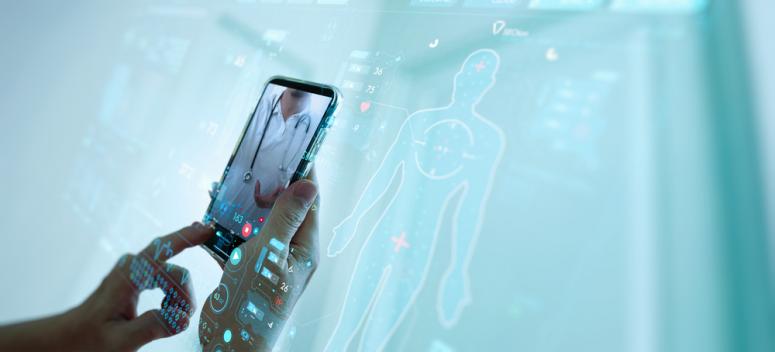
Every year, AcademyHealth President and CEO Dr. Lisa Simpson addresses the field of health services and policy research (HSR) at our Annual Research Meeting. This year, as we emerge from a global pandemic that has claimed the lives of more than 600,000 people in the U.S., she reflected on a need for the field to embrace scientific innovation to better serve the critical needs of our health care ecosystem.
“As a field, we have been settled into a system that has worked for some very well—but has not delivered the impact for all that I think health services research should. The things we normalized along the way – our doctrines about what counts as evidence, our accepted ways of career advancement based on individual success, our failure to reward impact, the data we have collected– and more importantly what data we chose to NOT collect, and even the kinds of questions we have been asking– all of this has become so established in the tableau of standard research practice that we rarely question them. I think we should,” she said during her opening remarks at ARM 2021
Even before the pandemic, there had been multiple calls for scientific innovation in HSR. Here at AcademyHealth, we identified it as one of our key cross-cutting priorities and a pilar of our strategic plan in 2020 – alongside diversity, equity and inclusion, and health system improvement. We also launched the Paradigm Project in July 2019, bringing together a vibrant and diverse learning community to rethink 17 different aspects of the field to ensure the field is more timely, more actionable, and more equitable. The group has commissioned several white papers on issues ranging from the research funding process to strategies to increase the societal impact of HSR. In recent months, the Paradigm Project has also convened expert meetings to explore additional topics including the implications of emerging “real world” data sources and artificial intelligence and the applicability of “open science” principles to health services research.”
The agenda of last week’s ARM was also full of sessions highlighting and spurring new innovations. Plenaries on both the opening and final days of the conference centered on the topic. “The Changing Nature of Evidence” examined where real-world evidence meets HSR. Moderator Tanisha Carino led panelists in discussion around three themes including the expanding amount of data sources, lessons learned from the COVID-19 pandemic, and thoughts for the future.
One key theme from the panel was the pace of innovation and balancing rigor with real-world needs. As an example, the panelists discussed the FDA’s expedited approval of the COVID-19 vaccine as well as its more recent approval of the first medication to treat Alzheimer’s Disease.
“We can’t afford to wait seven years to see the impact. And we know we have data at our fingertips that are going to tell us a robust story about what’s happening,” said panelist Carolyn Magill, CEO of the digital health company Aetion.
The closing plenary of the conference, “Reimagining Public Health,” discussed the imperative to strengthen and reimagine public health in light of the events of the last year, and what evidence we need to drive that transformation.
“Public health has had a spotlight it has hardly ever had,” panelist Danny Avula, Richmond City Health District director, said. “How are we going to use the platform that COVID has given public health?”
Fellow panelists emphasized the need for more advanced data infrastructure, increased innovation in the way we do public health services research including a holistic approach, and the makeup of the public health workforce. Georges Benjamin of the American Public Health Association emphasized the vast nature of the public health ecosystem and how important it is to address public health interventions from a system-level perspective based on partnerships.
Shelley Hearne further highlighted the need for investment in the public health data infrastructure.
“We have the world’s largest chronic disease burden, but we have very little disease surveillance data on these issues,” she said.
Avula also emphasized the need for a more representative public health workforce that reflects the communities in which they work.
“When we have community health workers and outreach workers who actually are hired locally from those communities it always jump-started their efficacy,” he said.
From workforce to data sources, panelists across sessions agreed that there is an opportunity at hand to better leverage HSR to improve health and health care for all, especially as we continue to document and understand lessons learned from the pandemic. As Paradigm Project lead Michael Gluck wrote in a recent blog post:
“Recent events demand a major shift in how we think about ourselves, our society, and the ways in which we can stand up to the challenges of our time and in the process uncover the solutions they require.”